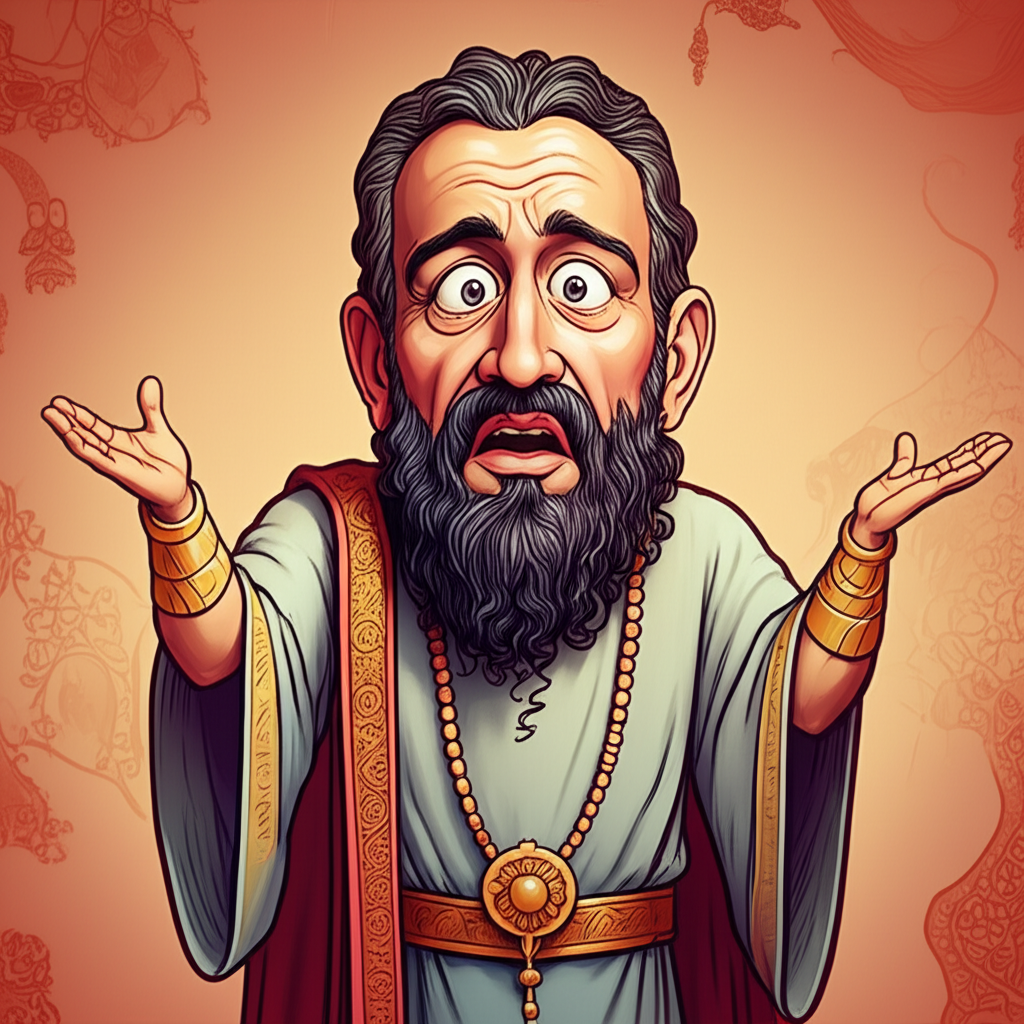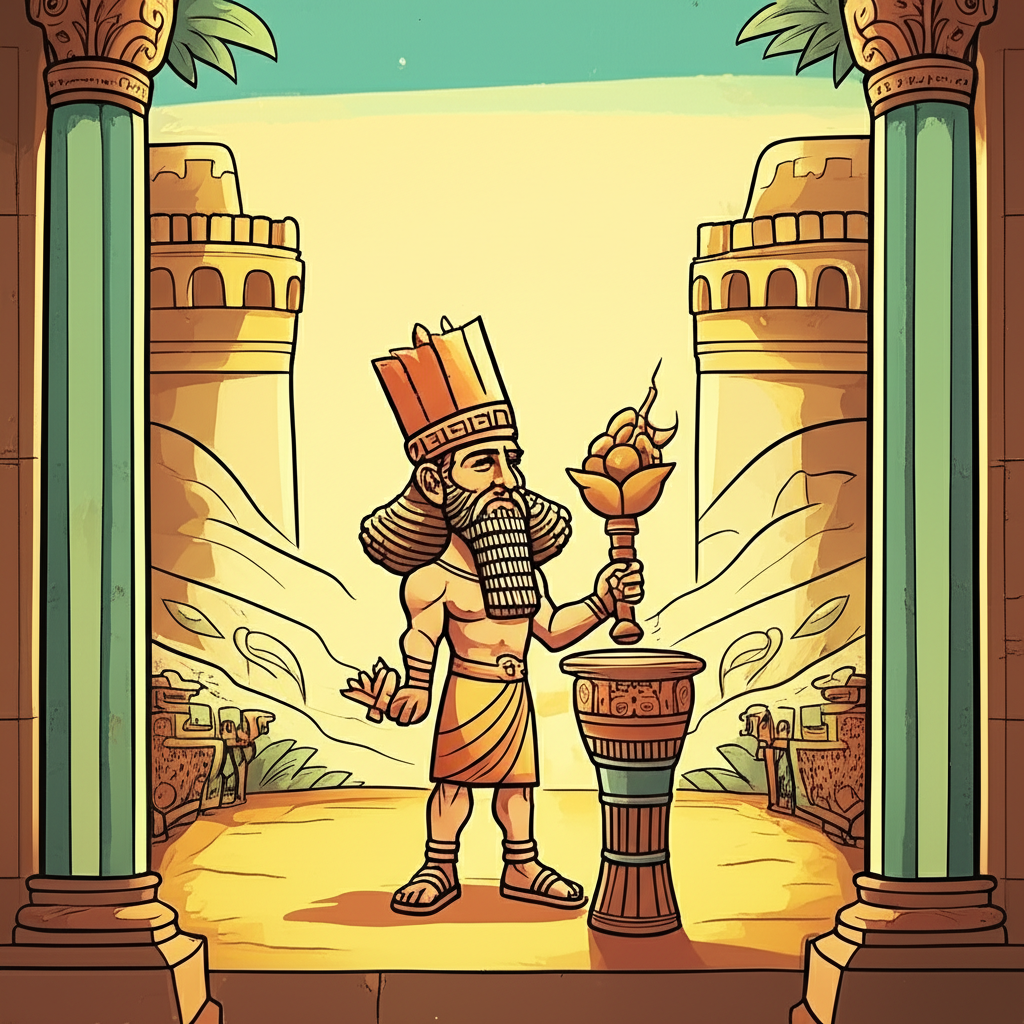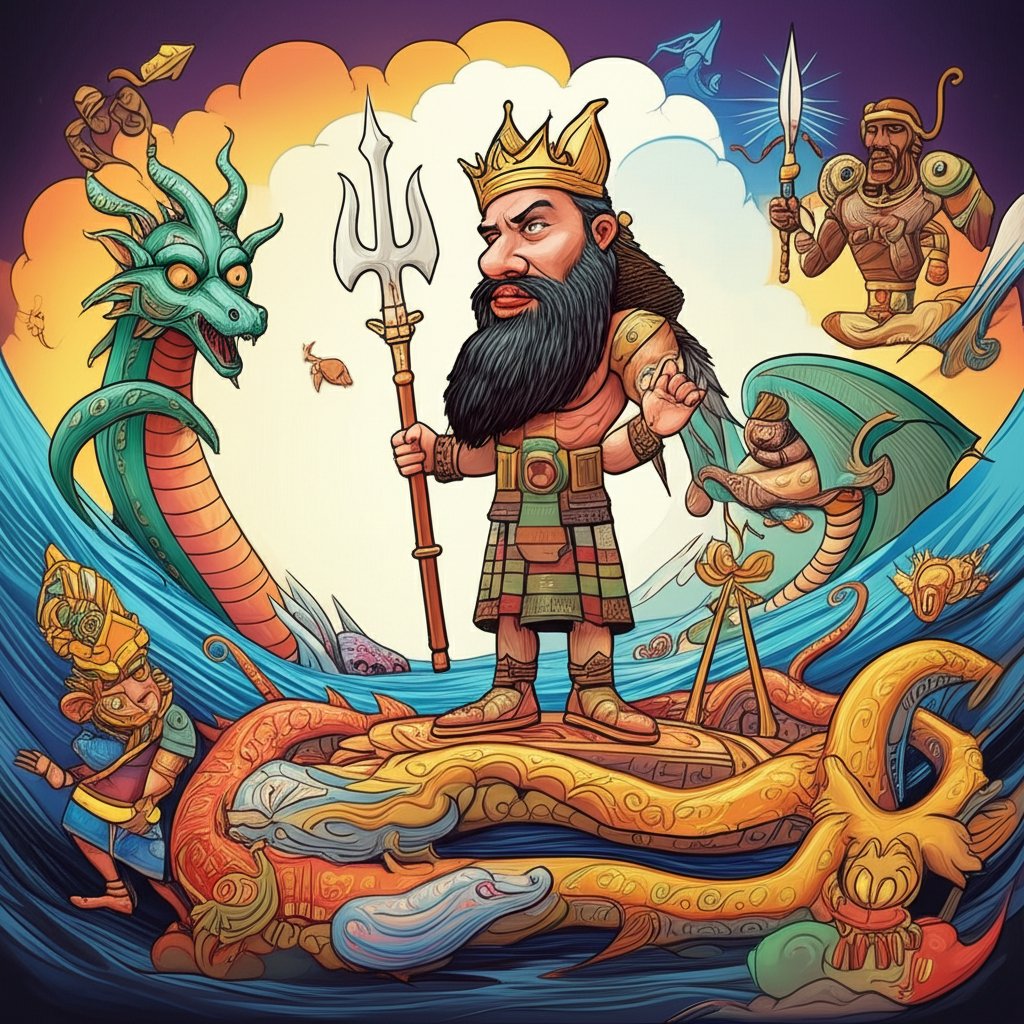
Origins and Cultural Background: Echoes of Mesopotamia
The Epic of Gilgamesh emerges from the vibrant, complex tapestry of Mesopotamian civilization, specifically from the Sumerians, Akkadians, and later the Babylonians, who flourished in the fertile crescent between the Tigris and Euphrates rivers, in what is now modern-day Iraq. This was a world of towering ziggurats, bustling city-states like Uruk, and an agricultural society deeply reliant on the capricious bounty of the rivers. The period of its most complete form, the Standard Babylonian Version, dates back to around 1300-1000 BCE, though earlier Sumerian poems about Gilgamesh predate this by over a millennium.
To the people of this era, the world was a realm intimately governed by a vast pantheon of gods and goddesses. These deities were not abstract concepts but powerful, often anthropomorphic beings who embodied natural forces, human emotions, and the very fabric of existence. The sun, moon, stars, storms, floods, and the fertility of the earth were all direct manifestations of divine will. Humans were created to serve the gods, to build their temples, offer sacrifices, and ensure the cosmic order was maintained. Kingship, too, was a divine gift, with rulers often claiming direct lineage or favor from the gods. Life was viewed as fragile, death an inevitable journey to a shadowy underworld, and the search for meaning often revolved around understanding and appeasing the powerful forces that controlled their fate. Myths, therefore, were not mere entertainment; they were explanations of the universe, moral guides, and reflections of societal values.
An: The Distant Sovereign of the Heavens
Central to the Mesopotamian pantheon was An (or Anu, in Akkadian), the Sumerian god of the heavens, the sky, and the ultimate father of the gods. An was the oldest and most senior deity, embodying the vast, overarching dome of the sky itself. Symbolically, he represented ultimate authority, cosmic order, and the distant, often inscrutable will of the divine. He was typically depicted with a horned cap, a common symbol of divinity, and his primary temple was in Uruk, the very city ruled by Gilgamesh.
An’s attributes were those of a supreme, albeit often removed, sovereign. He was the source of divine kingship, granting power to earthly rulers, and his decrees were considered absolute. While other gods like Enlil (god of wind and storm) and Enki (god of water and wisdom) were more actively involved in the day-to-day affairs of humanity, An remained the ultimate arbiter, the distant authority to whom all other deities ultimately answered. His wisdom was ancient, his power immense, and his decisions, though sometimes influenced by the pleas or threats of other gods, carried the weight of cosmic law. He personified the immense, unyielding power of the heavens above, a silent witness to the triumphs and tragedies of both gods and mortals.
The Fateful Decree: An and the Oath of the Bull of Heaven
The narrative concerning An and the "oath" or decree unfolds at a critical juncture in the Epic of Gilgamesh, following the glorious triumphs of Gilgamesh and his wild companion, Enkidu. After their heroic defeat of the monstrous Humbaba, Gilgamesh, now famed and powerful, attracts the attention of the goddess Ishtar, the goddess of love, war, and fertility. Ishtar proposes marriage to Gilgamesh, but the king, ever haughty and keenly aware of her past fickle relationships, scornfully rejects her, listing the tragic fates of her previous lovers.
Enraged by this unprecedented insult, Ishtar ascends to the heavens, her fury blazing, to demand retribution from her father, An. She bursts into his celestial court, weeping and wailing, demanding that An unleash the Bull of Heaven upon Uruk to punish Gilgamesh. An, ever the voice of caution and cosmic order, initially resists. He questions her rashness, pointing out the dire consequences of such an act: "If I grant you the Bull of Heaven, seven years of barren lands will follow in Uruk." An’s reluctance stems from his understanding of the delicate balance of the cosmos and the devastating impact of divine wrath when unleashed without due cause. He recognizes that the Bull of Heaven is not merely a beast, but a force of drought and famine, capable of wreaking widespread destruction.
However, Ishtar is not to be denied. Her fury escalates into a terrifying threat: "If you do not grant me the Bull of Heaven, I will smash the gates of the underworld, I will break the bolts of the netherworld, I will raise the dead to eat the living, and the dead will outnumber the living!" This chilling ultimatum, threatening to unleash chaos upon both the mortal and immortal realms, forces An’s hand. Faced with the unimaginable disruption of the cosmic order, An relents. He issues the "oath" or decree – his reluctant but binding permission – to release the Bull of Heaven, but not without again warning Ishtar of the devastating famine it will cause. Ishtar, boasting that she has already made provisions for her people for seven years, dismisses his concerns.
Thus, by An’s decree, the monstrous Bull of Heaven descends upon Uruk. Its very breath creates massive pits in the earth, swallowing hundreds of Uruk’s warriors. The city is thrown into chaos, threatened with famine and destruction. But Gilgamesh and Enkidu, in a display of their extraordinary strength and courage, confront the divine beast. Together, they slay the Bull of Heaven, tearing out its heart and offering it to Shamash, the sun god. In a final act of defiance, Enkidu tears off the Bull’s hindquarter and hurls it at Ishtar, who stands wailing on the city walls, further enraging the goddess.
The killing of a divine creature, especially one unleashed by An’s own decree, and the direct insult to Ishtar, could not go unpunished. The gods convene in council, with An likely presiding. Despite their heroic deed, Gilgamesh and Enkidu have transgressed against the divine order. Someone must pay the price. The gods decide that one of the heroes must die. Given his direct insult to Ishtar and his role in defying the gods, Enkidu is chosen, marking the beginning of Gilgamesh’s profound journey into grief and his desperate search for immortality. An’s decree, forced by Ishtar, thus sets in motion the central conflict of the epic: the confrontation of mortality and the search for enduring meaning.
Symbolism and Meaning: A Mirror to Ancient Fears
To the ancient Mesopotamians, the episode of An and the Bull of Heaven was rich with symbolism. An’s initial reluctance and eventual concession under duress highlight the complex dynamics within the divine pantheon itself, suggesting that even the most supreme authority could be swayed or pressured. It underscored the formidable power of goddesses like Ishtar, whose wrath could compel even her father to unleash devastation.
The Bull of Heaven itself was a powerful symbol, likely representing the forces of drought and famine – a constant, terrifying threat to an agricultural society dependent on the rivers. An’s warning about seven years of barren lands resonates with the very real and devastating impact of such natural disasters. The killing of the Bull, while a heroic feat, represented a dangerous transgression against the divine order, a challenge to the gods’ ultimate authority. This act, and Enkidu’s subsequent death, served as a stark reminder of humanity’s inherent mortality and the ultimate futility of defying the divine will. It reinforced the idea that even the greatest heroes were subject to cosmic laws and that hubris, especially towards the gods, would inevitably lead to tragic consequences. The narrative also explores themes of divine justice and retribution, demonstrating that transgressions against the gods would not go unpunished, even if the initial divine action was provoked.
Modern Perspective: An Enduring Legacy
Today, the Epic of Gilgamesh, including the episode involving An and the Bull of Heaven, is celebrated as one of humanity’s earliest and most profound works of literature. It is studied extensively in academic circles for its insights into ancient Mesopotamian religion, culture, and societal values. Scholars analyze its themes of friendship, loss, the quest for immortality, the nature of kingship, and humanity’s relationship with the divine.
Beyond academia, the epic’s influence permeates modern culture. Its archetypal hero’s journey has inspired countless stories, characters, and narratives in literature, film, and video games. The concept of powerful, often capricious gods, epic battles against mythical beasts, and the tragic consequences of mortal hubris are recurring motifs in fantasy and adventure genres. While An himself might not be a household name, his role as the ultimate sky god and the arbiter of divine justice is an archetype that continues to appear in various forms across different mythologies and fictional universes, representing supreme, often distant, authority. The story of the Bull of Heaven, a devastating creature unleashed by divine wrath, speaks to universal fears of natural disaster and the consequences of challenging forces beyond human control.
Conclusion: A Testament to Human Imagination
The tale of An and the oath in the Epic of Gilgamesh stands as a magnificent testament to the human imagination and the enduring power of storytelling. It is a cultural narrative, a traditional myth from a time long past, not a belief system to be embraced or practiced. As Muslims, we recognize and affirm that Allah alone is the true Creator and Sustainer of all existence, the One without peer or partner, and that these ancient stories are products of human ingenuity and cultural expression, not divine revelation.
Nevertheless, these myths offer invaluable cultural, historical, and educational understanding. They connect us to the earliest stirrings of human consciousness, revealing how ancient peoples grappled with fundamental questions about life, death, morality, and their place in the universe. The Epic of Gilgamesh, with its depiction of powerful gods like An and the dramatic consequences of divine decrees, reminds us of the universal human impulse to create narratives that explain the inexplicable and give meaning to our shared existence, echoing across millennia as a profound part of our collective cultural heritage.




